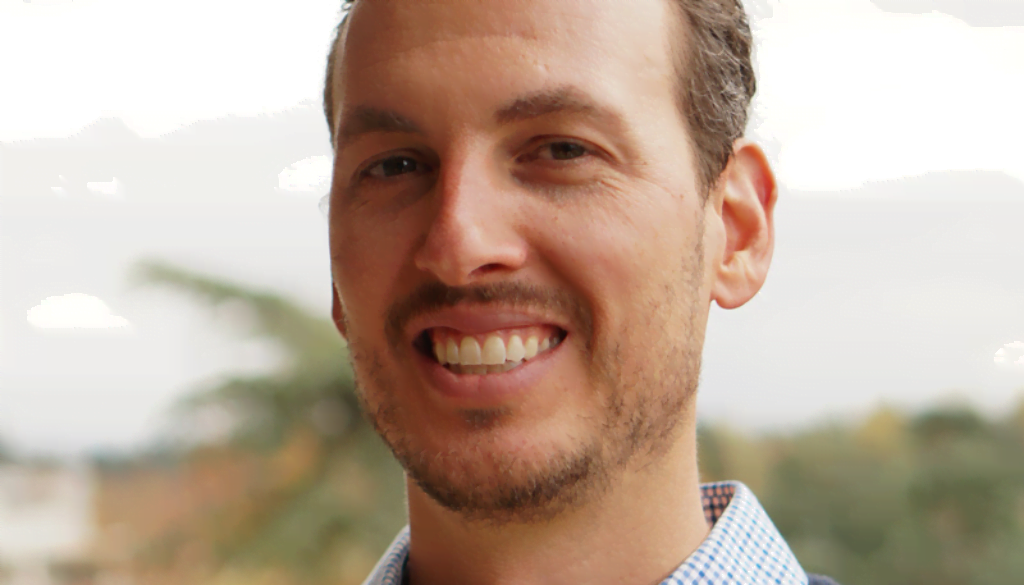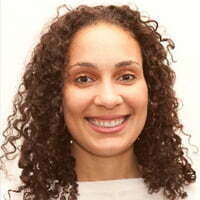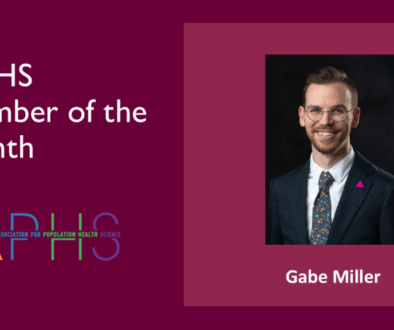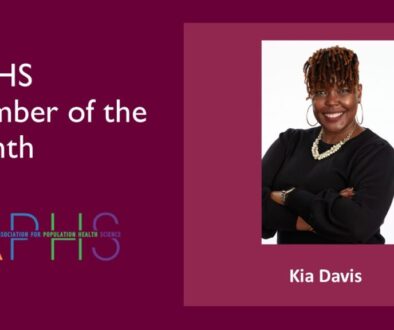Member of the Month: Trevor Peckham
Hedwig LeeTrevor Peckham is a doctoral student in the Department of Environmental and Occupational Health Sciences at the University of Washington. He joined IAPHS in 2017. Check out Trevor’s recent journal article in the Russell Sage Foundation’s special issue entitled Changing Job Quality: The Rise of Low-Wage Jobs and Nonstandard Work Arrangements.
Tell us a little about yourself, where are you from, where did you go to graduate school, what makes you jump out of bed each morning?
I grew up in Ventura, a beach town in Southern California, before attending UCLA for undergrad. After undergrad, I spent 5 years working in Los Angeles doing litigation consulting in the area of environmental and occupational toxicology (think Erin Brockovich). I’ve now been at the University of Washington for 7 years, first as a student, then as a research scientist, and now as a student again. Getting out of bed is easy: I love what I do, and there’s so much work to be done!
How do you define yourself as a population health professional?
I like to think of myself as combining the principles of environmental & occupational health and social epidemiology to address important questions at the intersection of work and health, in particular the role of employment relations in producing health and health disparities at the population-level. I’m motivated by the notion that the nature and organization of work is always changing due to social, economic, political and technological trends. These trends have widespread implications for the labor market experiences of millions of workers, and, given the myriad, complex connections between work and health, I think this topic demands attention from population health scientists from a variety of disciplines.
What disciplines do you engage with and are there disciplines that you would like to engage with?
My core research interests are focused on the study of precarious employment and health, which is fundamentally interdisciplinary. I read a lot of social science, as much of the theory underlying this work comes from sociological and economic literatures. My research approach is mostly influenced by (social) epidemiology, while my research outputs to date have mostly been angled toward occupational health audiences. I am also involved in several research projects and informal working groups that include faculty and students from fields such as sociology, public policy, public health, business, geography, social work, nursing, and others. These activities have been very influential in my thinking, helping expose me to pockets of relevant theory, methods, and evidence from other ‘silos’ that are approaching similar research questions from different angles.
Describe a current project/initiative that you are excited about.
It’s so hard to choose… Four years ago, I didn’t know anyone working on precarious employment and health; today, my colleagues and I have several grants, working groups, and a rapidly growing network focused on the topic. One particularly fun project I’m involved in is an EU-based collaborative to develop a research agenda for precarious employment within occupational health, including defining concepts and working toward standardized data collection.
Name a population health professional who you admire and why?
It might be a stretch, but I’ll stick within occupational health to submit David Michaels for admiration. He is an occupational epidemiologist who has transcended academia to contribute to real world impact more than almost any other public health professional that I can think of. Most notably, he is the longest serving head of the Occupational Safety & Health Administration in history, and a leading voice regarding how science is used in the development of policy. His book “Doubt is Their Product: How Industry’s Assault on Science Threatens Your Health” is a major reason I decided to double major in environmental health and public policy.
How did you hear about IAPHS?/Why did you decide to become a member of IAPHS?
Anjum Hajat, who co-chairs the IAPHS membership committee, suggested that I join. She also co-chairs my PhD dissertation committee, and I’ve learned that Anjum’s advice is usually pretty good! It turned out that a few other close colleagues of mine were becoming active in the group at the same time, so it really was a natural fit.
Have you attended an IAPHS meeting? If so, what do you like most about these meeting?
I had a great time at last year’s meeting in Washington, D.C. It was well run, with interesting and timely content, and had a good mix of students and researchers at various career stages. I was really impressed with the poster session–unlike other conferences where these sessions are a side feature, IAPHS poster sessions are where a lot of the action is!
What would you tell someone who is considering joining IAPHS?
Some researchers will be perfectly content and successful operating within traditional disciplinary tracts. But if a health researcher had any inkling that their work might benefit from broadening beyond their area’s historical boundaries, I would suggest that joining IAPHS is a potentially useful way to see how multiple disciplines can intersect to create valuable insights. If someone was already doing cross-disciplinary health research, I’d say, what are you waiting for?
What would you like to see IAPHS do in the future?
My personal biases lead me to hope that the work/employment-health area becomes a larger component within the IAPHS community.
Is there anything we have missed that you would like to add?
Look forward to seeing everyone at the upcoming IAPHS conference in my adopted hometown of Seattle!
OTHER INFORMATION
Name of organization: University of Washington
Name of department/division: Department of Environmental & Occupational Health Sciences
Title: PhD Candidate
Discipline: Occupational Health
Year Joined IAPHS: 2017
Favorite population health relevant book:
Kalleberg, A. L. (2011). Good jobs, bad jobs: The rise of polarized and precarious employment systems in the United States, 1970s-2000s. Russell Sage Foundation.
Favorite population health relevant article(s):
Diderichsen, F., Evans, T., & Whitehead, M. (2001). The social basis of disparities in health. Challenging inequities in health: From ethics to action, 1, 12-23.
Ahonen, E. Q., Fujishiro, K., Cunningham, T., & Flynn, M. (2018). Work as an inclusive part of population health inequities research and prevention. American journal of public health, 108(3), 306-311.
Favorite movie, band, non-fiction, book, etc.: Song of Ice and Fire






June 18, 2025 @ 4:20 pm
This profile of Trevor Peckham highlights the vital intersection of work and health, emphasizing the need for interdisciplinary approaches in population health research. His passion for addressing precarious employment and its health implications is inspiring. I appreciate the call for greater inclusion of this topic within IAPHS discussions, which can lead to broader insights and solutions. Looking forward to more of these engaging profiles!